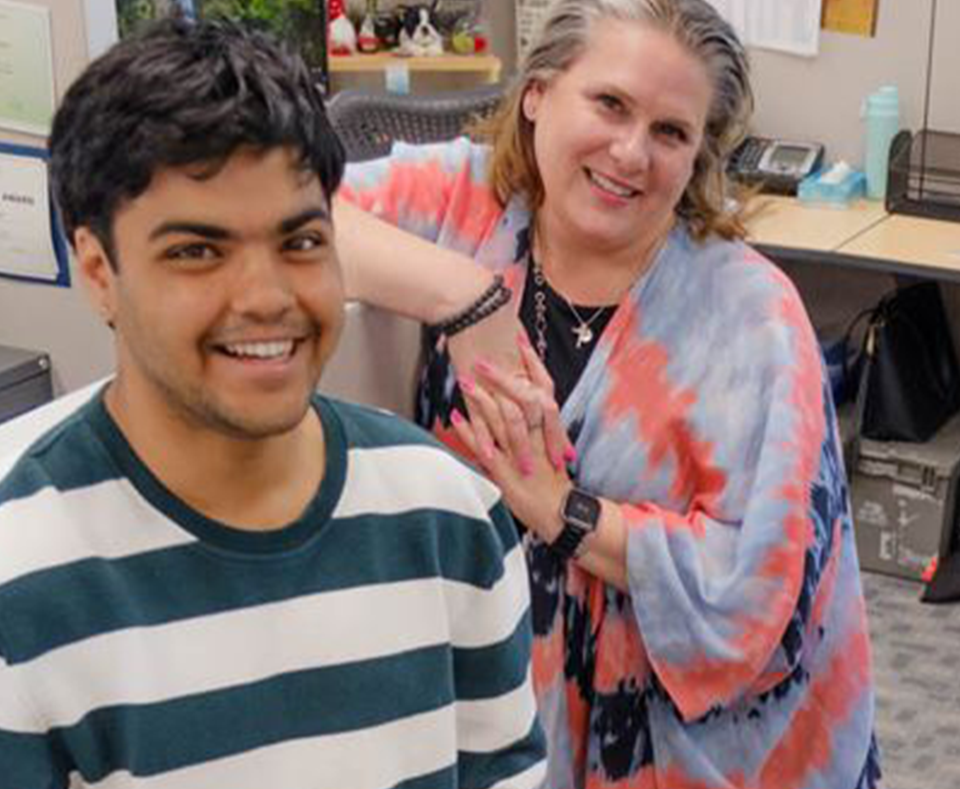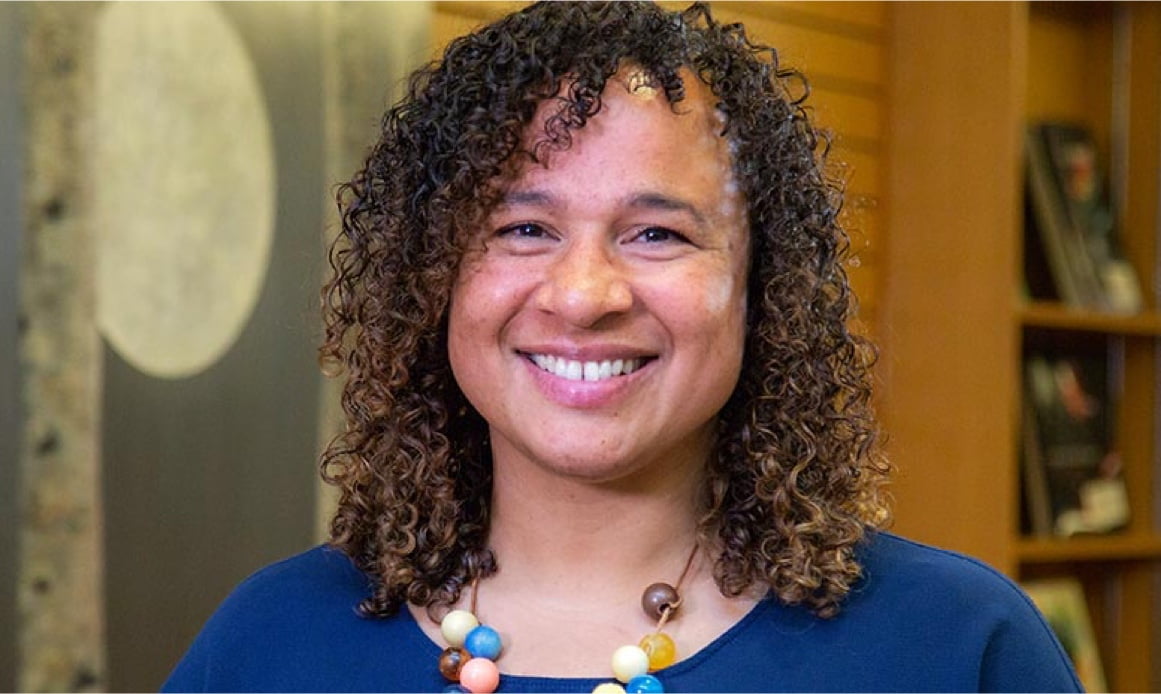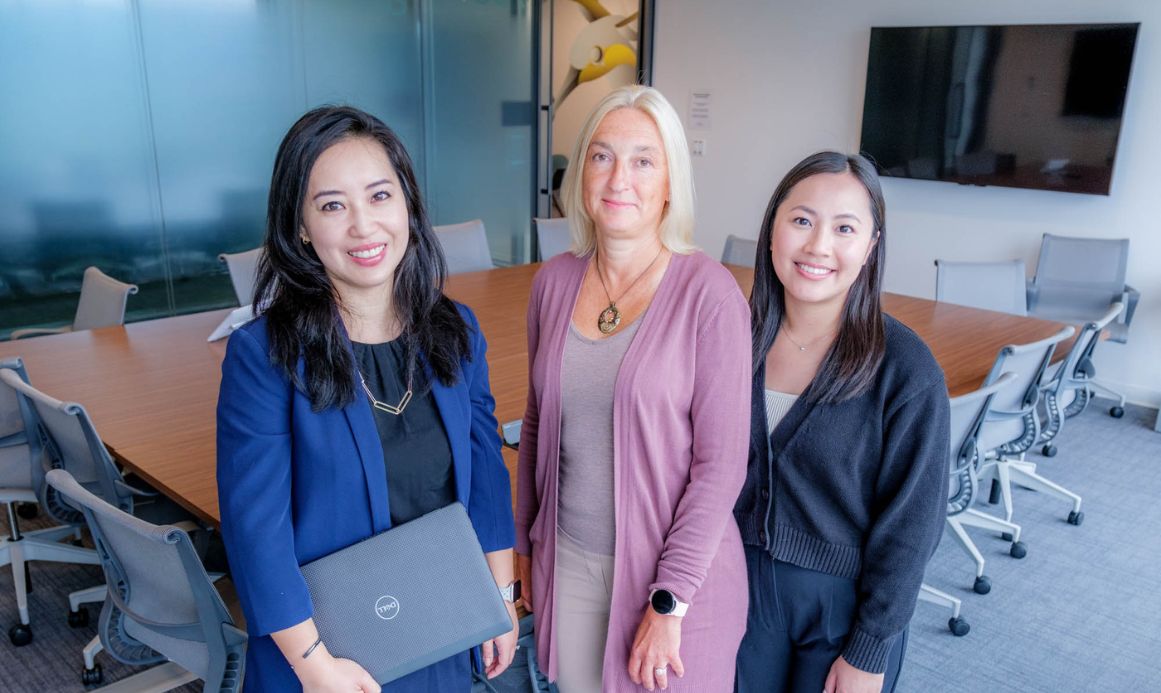Medical Lead Data Review Validation Committee (DRVC) Chair for Radiology Quality Improvement Systems - PHSA, Medical and Academic affairs
Medical Lead Data Review Validation Committee (DRVC) Chair for Radiology Quality Improvement Systems
PHSA, Medical and Academic affairs
Stipend – term to be determined (up to 5 years), 50 Hours Per Annum
$10,000 per annum
Provincial, BC
The Data Review Validation Committee (DRVC) oversees the centralized program of Radiology Quality Improvement Systems (RQIS) through peer review, monitors the RQIS data and makes recommendation to the RQIS Steering Committee. The DRVC chair is a radiologist that works with the RQIS Steering Committee and the Medical Imaging Advisory Committee (MIAC), RQIS partners, PMSEC, Chief Information Officer (CIO) and the Chief Financial Officer (CFO) council. The Chair leads the development of a quality improvement system that will enable peer review of all radiologists across the multiple modalities of medical imaging including, Xray, CT, MRI, Ultrasound, Nuclear Medicine, Mammography, and Bone density. The Chair provides practice and educational leadership to the Medical Imaging (MI) system of BC by developing strategies and initiatives that support a viable workforce in response to the growing demands, changing technology, and specialized roles required to support MI. The Chair participates on a variety of provincial committees and supports the technical working groups under the RQIS Steering Committee. The Chair Works in partnership with Health Authorities (HAs) to develop and implement initiatives that address clinical and health system needs. The Chair collaborates with a wide variety of internal and external partners including HA directors and managers, and IMITS. The DRVC is authorized and directed by the Boards of the Health Organizations and is scheduled to meet 3 times a year. This work is framed within PHSA’s vision to boldly create an equitable, anti-racist and culturally safe health system where everyone thrives.
What you’ll do
- Oversee the centralized program of Radiology Peer Review and monitors the RQIS data and makes recommendation to RQIS Steering Committee.
- Act as the Rad C Committee Lead, responsible for tallying final scores from the Rad C collaboration committee, submitting the final vote, and closing each case.
- Attend two meetings monthly and ensure Rad C cases are scored within one week, with timely responses to clinically significant cases.
- Lead the guidance and support to RQIS workflows and enhancement and monitor the efficiency of RQIS implementation
- Monitor results of the review outcomes (discrepancy rates) and implementing DRVC standards
- Monitor the participation and efficiency of RQIS implementation (radiologist read rates)
- Work closely and meets regularly with The DRVC Prioritization Working Group and the RQIS Technical team to focus on planning and implementation of the program.
- Support the development, implementation and consistent application of policies, procedures, clinical practice guidelines, and professional practice standards related to RQIS
What you bring
Qualifications:
- The candidate must hold an MD degree and must be eligible for certification with the Royal College of Physicians and Surgeons of Canada and the Licentiate of the Medical Council of Canada (LMCC). A full licensure with the College of Physicians and Surgeons of BC is required. A minimum of seven (7) years' radiology experience in progressively more complex and senior management roles in a large complex multi-site organization, including five (5) years' recent related clinical and operational experience with radiology, strategic and major project development/planning focusing on acute care service planning and/or redesign,
- Demonstrated ability to manage large scale projects in a health care environment that achieve high quality outcomes and exceed stakeholder expectations.
- Demonstrated ability to define, lead, plan, direct, manage and implement business and management processes.
- Demonstrated ability to maintain, function and develop rapport with Executive Management, senior operating executives and other stakeholders. Ability to manage the operational detail associated with a large and complex environment.
- Broad knowledge of clinical operations and service planning for clinical, non-clinical and support services in radiology.
- Excellent organizational, analytical and problem-solving skills. Lean process redesign experience as an asset.
- Proven ability to develop and maintain effective working relationships with others both internal and external to the organization.
- Demonstrate comprehensive knowledge of the historic and ongoing impacts of settler colonialism and systemic racism on Indigenous Peoples within social and health contexts. This includes understanding how these factors contribute to current health disparities and barriers to care. Show a clear commitment to identifying, challenging, and eradicating Indigenous-specific racism and all forms of discrimination impacting equity-deserving groups within healthcare settings. This involves recognizing personal biases, institutional barriers, engaging in anti-racism education and training and advocating for systemic change.
- Knowledge and understanding of legislative obligations and provincial commitments within PHSA contexts found in the foundational documents including Truth & Reconciliation Commission’s Calls to Action (2015), In Plain Sight (2020), BC's Declaration on the Rights of Indigenous Peoples Act (2019), United Nations Declaration on the Rights of Indigenous Peoples (UNDRIP), Reclaiming Power and Place Missing and Murdered Indigenous Women & Girls Calls for Justice (2019), the Declaration Act Action Plan and Remembering Keegan: A First Nations Case Study, BC Human Rights Code, Anti-racism Data Act and how they intersect across the health care system.
Core Competencies
- Brings an understanding of the Indigenous specific racism and the broader systemic racism that exists in the colonial health care structure and has demonstrated leadership in breaking down barriers and ensuring an environment of belonging. Embed Indigenous Cultural Safety and Humility into all aspects of work. This means creating an environment where Indigenous patients feel respected, valued, and understood. Foster trust through respectful communication, active listening, and honoring equity-deserving people's perspectives on health and wellness. Commit to ongoing education and training on Indigenous health issues, cultural safety, and DEI principles. Participate in workshops, cultural immersion experiences, and continuous professional development to stay informed and responsive to equity-deserving groups. Provide patient-centred care that respects Indigenous ways of knowing and healing, respects BIPOC experiences and world views ensuring that care plans are culturally relevant and holistic.
- Knowledge of social, economic, political and historical realities of settler colonialism on Indigenous Peoples and familiarity with addressing Indigenous-specific anti-racism, anti-racism and Indigenous Cultural Safety and foundational documents and legislative commitments (The Declaration Act, the Declaration Action Plan, TRC, IPS, Remembering Keegan, etc.).
You have:
- Demonstrate a commitment to beginning and continuing their personal learning journey related to Indigenous-specific racism and dismantling systems of oppression, as well as addressing racism more broadly. Shows willingness to articulate and share their learning experiences to contribute to a culture of motivation and inspiration among peers.
- Knowledge of the social, economic, and political realities of settler-colonialism and its impacts on Indigenous peoples and equity-deserving groups within social and health contexts. Understands the impact of social determinants of health-on-health outcomes. Shows a commitment to learning about and upholding legislative obligations and provincial commitments outlined in foundational documents such as the Truth & Reconciliation Commission’s Calls to Action (2015), In Plain Sight (2020), BC's Declaration on the Rights of Indigenous Peoples Act (2019), United Nations Declaration on the Rights of Indigenous Peoples (UNDRIP), Reclaiming Power and Place: Missing and Murdered Indigenous Women & Girls Calls for Justice (2019), the Declaration Act Action Plan, Remembering Keegan: A First Nations Case Study, the BC Human Rights Code, Anti-Racism Data Act, and the Distinctions Based Approach.
Applications are accepted until it is filled.
What we bring
Every PHSA employee enables the best possible patient care for our patients and their families. Whether you are providing direct care, conducting research, or making it possible for others to do their work, you impact the lives of British Columbians today and in the future. That’s why we’re focused on your care too – offering health, wellness, development programs to support you – at work and at home.
- Join one of BC’s largest employers with province-wide programs, services and operations – offering vast opportunities for growth, development, and recognition programs that honour the commitment and contribution of all employees.
- Access to professional development opportunities through our in-house training programs, including +2,000 courses, such as our San’yas Indigenous Cultural Safety Training course, or Core Linx for Leadership roles.
- Salaried Physicians enjoy a comprehensive benefits package, including municipal pension plan, and psychological health & safety programs and holistic wellness resources.
- Salaried Physicians receive annual statutory holidays (13) with generous vacation entitlement and accruement.
- Access to WorkPerks, a premium discount program offering a wide range of local and national discounts on electronics, entertainment, dining, travel, wellness, apparel, and more.
What we do
The Provincial Health Services Authority (PHSA) plans, manages and evaluates specialized health services with the BC health authorities to provide equitable and cost-effective health care for people throughout the province. Our values reflect our commitment to excellence and include: Respect people – Be compassionate – Dare to innovate – Create equity – Be courageous.
Learn more about PHSA and our programs: jobs.phsa.ca/programs-and-services
PHSA is committed to anti-racism and equity in our hiring and employment practices. With learning and compassion, we are addressing existing inequities and barriers throughout our systems. PHSA is seeking to create a diverse workforce and to establish an inclusive and culturally safe environment. We invite applications and enquiries from all people, particularly those belonging to the historically, systemically, and/or persistently excluded groups identified under the B.C. Human Rights Code.
One of PHSA’s North Star priorities is to eradicate Indigenous-specific racism, which includes ongoing commitments to Indigenous recruitment and employee experience as well as dismantling barriers to health care employment at every level. We welcome Indigenous individuals to apply and/or contact the Sanya’k̓ula Team (Indigenous Recruitment & Employee Experience) for support at indigenous.employment@phsa.ca.
Indigenous-specific anti-racism initiatives are rooted in addressing the unique forms of discrimination, historical and ongoing injustices, and exclusion faced by Indigenous peoples. These initiatives align with an Indigenous rights-based approach, recognizing the inherent rights and title of BC First Nations and self-determination of all First Nations, Inuit and Métis communities. PHSA is mandated to uphold legislative obligations and provincial commitments found in the foundational documents including the Truth & Reconciliation Commission’s Calls to Action (2015), In Plain Sight (2020), BC's Declaration on the Rights of Indigenous Peoples Act (2019), United Nations Declaration on the Rights of Indigenous Peoples (UNDRIP), Reclaiming Power and Place Missing and Murdered Indigenous Women & Girls Calls for Justice (2019), the Declaration Act Action Plan and Remembering Keegan: A First Nations Case Study.
Learn More
Related Content
-
 Our Programs Explore to find the right program for you at PHSA.
Our Programs Explore to find the right program for you at PHSA. -
 Rewarding Health Care Nursing Careers and Jobs with PHSA Provide specialty nursing in clinical health care and research. Explore careers throughout B.C. with the Provincial Health Services Authority (PHSA).
Rewarding Health Care Nursing Careers and Jobs with PHSA Provide specialty nursing in clinical health care and research. Explore careers throughout B.C. with the Provincial Health Services Authority (PHSA). -
 Indigenous Health Care Jobs and Careers with PHSA Join our thriving Indigenous workforce in a corporate or clinical role. Explore careers in B.C. with the Provincial Health Services Authority (PHSA).
Indigenous Health Care Jobs and Careers with PHSA Join our thriving Indigenous workforce in a corporate or clinical role. Explore careers in B.C. with the Provincial Health Services Authority (PHSA). -
 Physician Careers at PHSA Our PHSA medical leadership team provides care that is among the best in the world, contributing to research that is changing the future of health care.
Physician Careers at PHSA Our PHSA medical leadership team provides care that is among the best in the world, contributing to research that is changing the future of health care. -
 Health Care Correctional Health Services Jobs and Careers With PHSA Correctional Health Services provides exceptional care for incarcerated patients. Join us in a career with Provincial Health Services Authority (PHSA).
Health Care Correctional Health Services Jobs and Careers With PHSA Correctional Health Services provides exceptional care for incarcerated patients. Join us in a career with Provincial Health Services Authority (PHSA). -

-

-
 Talent on Demand Talent on Demand is PHSA’s unique in-house recruitment program offering temporary employment opportunities in health care across British Columbia.
Talent on Demand Talent on Demand is PHSA’s unique in-house recruitment program offering temporary employment opportunities in health care across British Columbia. -
 PHSA recognized as a Top Employer in BC PHSA has been named one of BC's Top Employers for 2024 and 2025, recognizing its commitment to a supportive, enriching workplace. Join our award-winning team—apply today!
PHSA recognized as a Top Employer in BC PHSA has been named one of BC's Top Employers for 2024 and 2025, recognizing its commitment to a supportive, enriching workplace. Join our award-winning team—apply today! -
 Infection Prevention and Control Careers Become a member of the Infection Prevention and Control (IPAC) team and play a critical role in improving patient care by preventing the spread of infections across our health care system.
Infection Prevention and Control Careers Become a member of the Infection Prevention and Control (IPAC) team and play a critical role in improving patient care by preventing the spread of infections across our health care system. -
 British Columbia Lifestyle Located on Canada’s west coast, the province of British Columbia offers a range of lifestyle options including urban bustle, suburban convenience, rural adventure, and small-town living.
British Columbia Lifestyle Located on Canada’s west coast, the province of British Columbia offers a range of lifestyle options including urban bustle, suburban convenience, rural adventure, and small-town living.
Jobs for You
- Inventory Supply Technician (Casual) Nov. 04, 2025
- Coordinator, Integrated Protection Services Operations Nov. 04, 2025
- Medical Laboratory Technologist, Genome Diagnostics CW P2A Oct. 02, 2025
You have not recently viewed any jobs
You have not saved any jobs












